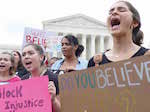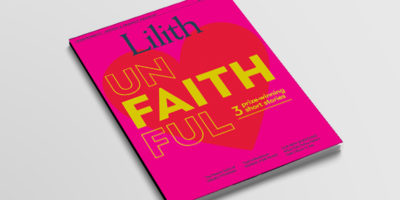
Raised on Intersectionality, What’s a Teen to Do?
“And” is the most important word in the English language. It’s the linguistic equivalent of coalition building. It can build on an existing sentence, and more importantly, it can glue opposing truths together in one sentence, allowing messy realities to coexist. I’m Jewish and bisexual and feminist and Zionist, and I support Palestinian human rights, and I believe Black Lives Matter. All of these identities are central to who I am, and no single one undermines the other.
It makes sense, then, that over the course of my high school career, I fell in love with the concept of intersectionality. I attended Seeds of Peace International Camp where I engaged in raw and emotional dialogue with Palestinian and Israeli teens, and thought critically about my community’s role in oppressing Palestinians. I learned about Zionism with nuance in my “Dual-Narratives of the Middle East” history class. I attend a high school named after Rabbi Abraham Joshua Heschel, which celebrates his commitment to Civil Rights and his work alongside Dr. King. I learned and wrote about Jewish Feminist history with the Jewish Women’s Archive. I used my 11th grade research project to explore the role of Black women in the feminist and Civil Rights Movements. These combined influences forced me to see the necessity of a theory for social organizing that embraces the plurality, the “and-ness” of an identity.
Yet, in the wake of this year’s controversies, this word that has for so long made me feel visible is now being misinterpreted to erase me. Jewish writers write articles accusing me of anti-Semitism for supporting the Women’s March and intersectional feminism despite anti-Semitism in the movement. Feminist writers accuse me of phony allyship for foregrounding anti- Semitism. Each of these groups wants me to privilege one identity over the other, but intersectionality taught me that this was not only unnecessary, but impossible.
Although the recent controversy has felt painful and personal, I will continue to participate in movements like the Women’s March. Rather than taking myself out of the conversation, I will bring my full self to the table, Judaism, Zionism, and all. Maybe intersectionality is too long and complicated a word. Why use seventeen letters when you only need three? I’m Jewish and bisexual and Feminist and Zionist, and I support Palestinian human rights, and I believe Black Lives Matter. And I know better than to choose one over the other.


